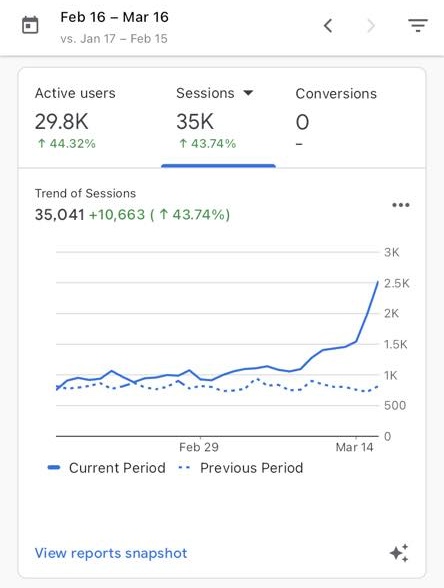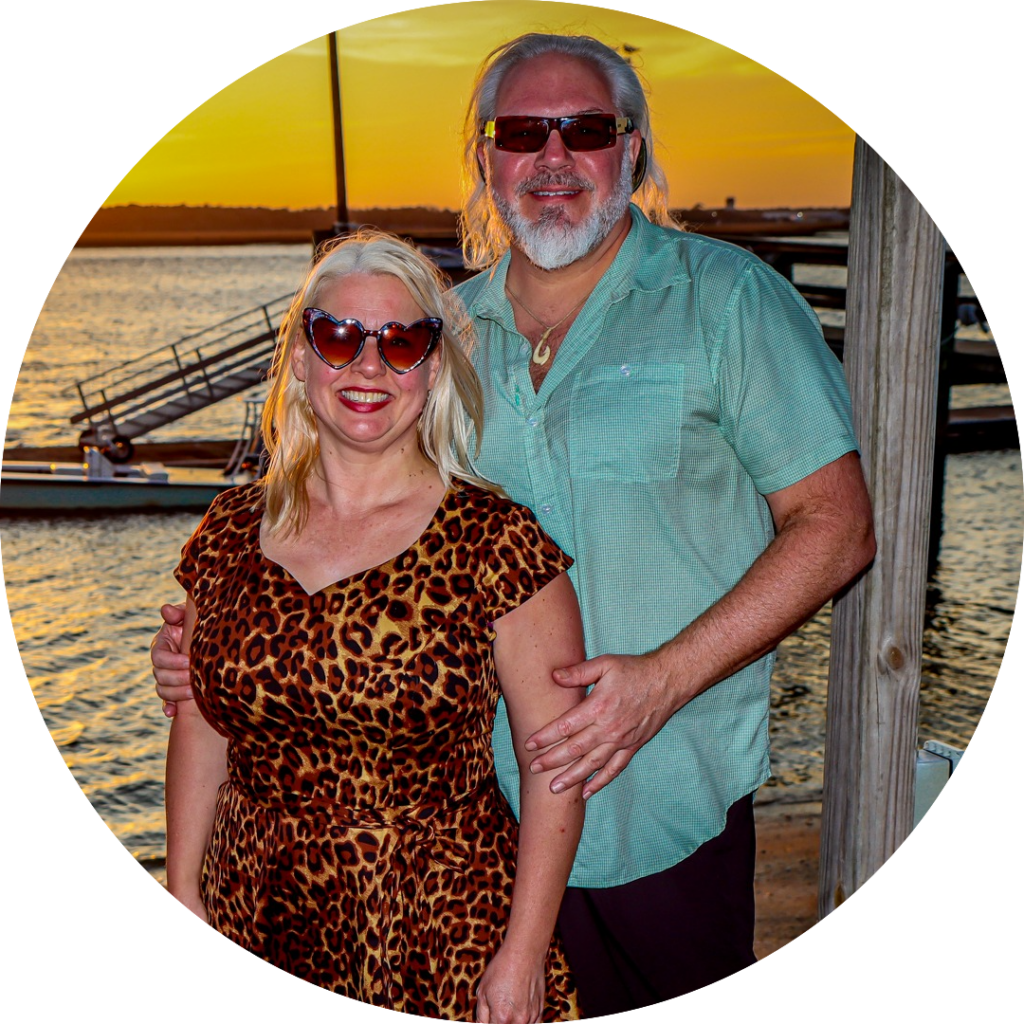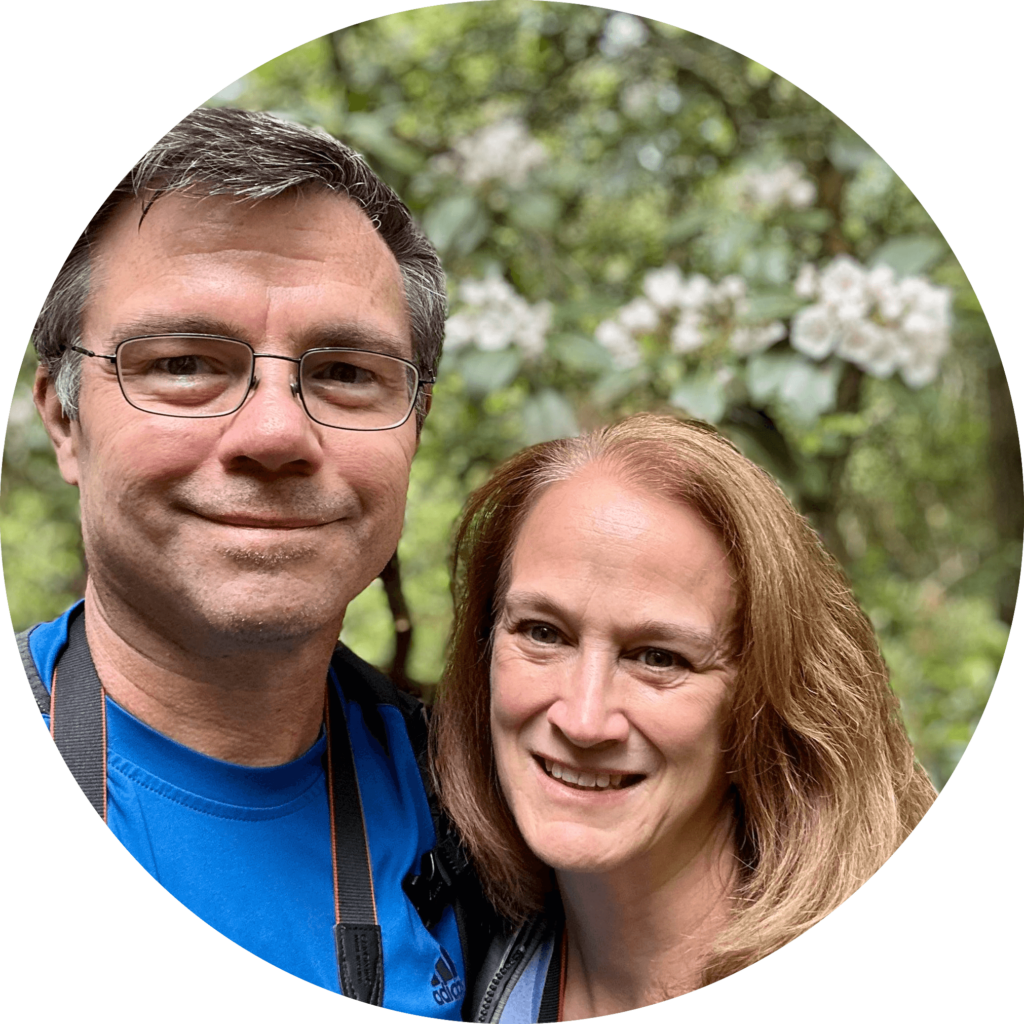It has been a while now since travel blogging turned from a fun hobby into a data-driven SEO game. On the one hand, Google updates 2024 aim to improve reader experience. On the other hand, these updates often force bloggers into a situation in which they must change their content and strategy to keep getting search traffic.
Read on to learn about the Google updates over the past months and the main struggles that travel bloggers faced as a result. You’ll also receive some expert tips on how to optimize your travel blog content in 2024.
What Happened: A History of Google’s Algorithm Updates
As travel blogging has transformed into a meticulous game of SEO optimization, we have compiled a list of the biggest Google updates that occurred over the last 17 months. Reading about these updates can help you understand possible traffic fluctuations, so make sure to have your blog traffic reports in front of you.
What Are Google Algorithm Updates?
Google’s algorithms are a sophisticated system that Google has developed to rank webpages in the search results. To keep the most relevant content on top, these algorithms consider hundreds of factors, such as content relevance, quality, reader experience, and more.
While Google used to introduce only a few changes every now and again, the search engine is now known to roll out thousands of updates per year.
Major Google Algorithm Updates in 2023-2024
Below, you will find a list of the major Google updates in reverse chronological order. We excluded core updates that are rolled out on a regular basis. You can read more about core updates, why they are important, and what changed in Google’s guidelines.
Site Reputation Abuse – May 6, 2024
This anti-spam update aims to take down websites that host third-party content to manipulate search rankings. This may include sponsored, advertising, and partner content that has little to do with the hosting website and brings no value to users. You can read more about site reputation abuse in Google’s guidelines.
Reviews Update – November 8, 2023
This change concerns rankings of review content to bring only useful reviews to the top of the search results. You can read more in Google’s guidelines.
Spam Update – October 4, 2023
This spam update was designed to enhance spam detection systems as well as provide better language coverage and clean search results. Namely, the update addresses cloaking in addition to hacked, auto-generated, and scraped spam content. It covers various languages, including Chinese, Hindi, Indonesian, Turkish, Vietnamese, etc.
Helpful Content Update – September 14, 2023
In this update, Google loosened its strict policies on AI-powered content. This update addressed mainly third-party content, such as advertising or sponsored content, published on websites. You can read more in our article “Answers to Your Top Questions About the September 2023 Update” and in Google’s guidelines.
Reviews Update – April 12, 2023
This update addressed review content and introduced the Double-E-E-A-T content quality paradigm. The concept of E-A-T (Expertise, Authoritativeness, Trustworthiness) is now substituted by Double-E-E-A-T. In which the extra “E” stands for Experience, while the word “Double” indicates a new approach to content quality. You can read more in Google’s guidelines.
Product Reviews Update – February 23, 2024
This update addressed content in multiple languages with a focus on English, Spanish, German, French, Italian, Vietnamese, Indonesian, Russian, and more. The update aims to eliminate thin content. You can read more in Google’s guidelines.
Link Spam Update – December 14, 2022
This update aims to reduce the presence and impact of unnatural links in the search results. You can read more in Google’s guidelines.
How Google Updates Have Affected Travel Blogs: The Experiences of Content Creators
Google’s algorithm updates can significantly impact travel bloggers, often presenting challenges alongside opportunities. Many bloggers experience highs and lows on their journey to success. In this section, we’ll explore how several travel bloggers have navigated these changes and adapted their strategies accordingly.
Decrease in Traffic on High-Quality Blogs

Olly Gaspar, a professional adventure travel photographer, travel writer, and founder of We Seek Travel, noted that Google favors UGC regardless of its relevance:
“Looking through that, I see drops from the October Core Update and the March Core Updates. While it’s hard to pin down exactly why, from a user perspective, I see that Google seems to be favoring UGC sites over high-quality travel blogs for many search queries.
Also, Google’s perceived search intent for many queries seems to have changed. Many articles where I offer my researched suggestions and in-depth knowledge, complete with first-hand experience, original photos, and personal opinions, are now usually outperformed by Google’s commercial-intent links– or Reddit posts from >5 years ago.
To me, it feels like a monopolization of information that has nothing to do with “helpful content”, “EEAT” etc. That said, I see most of the traffic drops coming from big commercial intent keywords.
I didn’t set out to make millions from blogging, I just wanted to share my photography and guides. Yeah, this turned into a business but I never sold out with my blog posts, I kept writing about things I wanted to share, so many articles still do well since I wasn’t publishing to maximize profit.
I think Google now favors authority, site structure, and branding above all else. I also think that they try to combat that by sprinkling in “hidden gems” with that update, which sometimes are great but are sometimes the opposite of “helpful”. Search is a mess…
For context, I’ve invested a lot of time and energy into writing the most helpful travel guides possible and I believe my travel blog is one of the 10 fastest on the web with a fairly good UX– this hasn’t helped much at all the recent updates. I’m still optimistic for the future. Maybe Google will actually understand the content it’s ranking one day. For now, I try to cut through the noise and will continue creating great guides, a strategy that has worked really well for me for 6+ years.”
Decline in Traffic on Blogs With Rare Updates

Christine Rogador, the creator of Ireland Travel Guides, experienced significant drops in traffic after the September update:
“I got hit hard by the September update, but 4 sites appeared to be slowly recovering, this month, with the new update—3 travel related sites and 1 non-travel site.
The funniest thing? We barely updated any of them, except one travel site, where we published 1-3 new articles published every month. The other 3 websites got hit hard again this month and we’ve been publishing hard on those sites.
The screenshot is from a travel site with the highest gain so far at 48% this month. Not sure if these gains will hold, but better than the alternative for now, I guess.”

Decrease in Traffic on SEO-Focused Blogs

Jenny Gallion Femrite, the creator of Seeking Stamps, experienced a decrease in traffic on her SEO-focused blog. Many of her posts that had been ranking at the top of the search results were outranked by older content. As a result, Jenny decided to diversify her traffic sources:
“I didn’t get significantly hit during the first update, but my traffic is down by about 1/3 right now. Many of my #1 posts are currently outranked by crappy responses on Quora or Reddit (even ones about my local city, where I have lived for over 20 years).
My plan is to stop checking my analytics, hang in there, and keep going. Hopefully, things will get sorted out.”

Bret Love of Blue Ridge Mountains Travel Guide and Green Global Travel also turned the focus on diversifying traffic sources and building an audience on social media to depend less on SEO:
“I’m not updating a damn thing until I see data suggesting that doing so would produce results.
Suffice it to say, our Mediavine revenue is down 40% year on year, but we still made just $300-$400 less than last January thanks to increasing our non-Google-reliant revenue. And January is always our slowest month…”
Increase in Traffic on Blogs With Low Ad Density
Other bloggers had a bit more luck and actually saw their rankings go up after the Helpful Content Update in September 2023.

Erin has been running a general travel blog Pina Travels (Instagram) for 8 years now, posting 95% own images and lots of personal experiences. She keeps a low ad density and a pretty low ratio of affiliate posts. In the last few months she experienced traffic growth:
“I wasn’t hit by the HCU at all. In fact, my blog seemed to benefit from it. I was accepted into Mediavine at the end of October 2023, and my traffic continued climbing. March 2024 was my biggest month yet—I cracked 80k sessions.
This month, my traffic it seems to have dipped very slightly, but it may be seasonal because some of my content covers places that are popular to visit in winter and spring. My rankings seem to be holding on. I’m cautiously optimistic that I’ve made it through this update unscathed, but still need the dust to settle to know for sure.”

Larry Deane of Blue Ridge Mountain Life also believes that changes in traffic are related to the density of ads on one’s website:
“Once the update is done, go look at some of the top-ranking content and compare it to your own. Note the differences and fix them. Look at other areas where you can diversify your traffic and revenue. Newsletters, social media posts, YouTube, etc.
I’m honestly a bit mystified other than that the update seems very advertising and money focused. I’m definitely seeing a trend for larger search terms, where smaller websites were significantly impacted. Based on what I’m seeing right now, I’ve experienced about a 40% loss in traffic from the changes compared to last year.”
How to Tame Google Updates: 4 Strategies From Travel Bloggers
Not sure how to keep up with these constant Google updates? No worries, we have gathered hands-on tips from travel bloggers that will help you focus on what is most important. Make sure to track your blog performance to learn what works for your blog and what does not.
1. Write Niche Content
If your general travel website does not grow due to the latest Google algorithm update, consider focusing on country- or city-specific content or even start a new niche blog.

Marek Bronstring of Indie Traveler shared that he noticed major shifts in rankings for specific posts:
“1 site was positively affected. My other site, which I launched in July of 2023, grew from 500 to about 20k visitors a month in this period, despite the Google updates. Site 1 has Mediavine all over, Site 2 has no ads, only affiliate links. Indie Traveller, my main site, is up moderately overall. With that said, there have been big shifts in the ranking of individual posts.
A pattern I noticed is that more general lists (for instance, suggested countries to travel to) have had to cede ground to larger platforms or brands. More specific posts have fared better.
I also started a niche destination site in July 2023, which has grown wonderfully despite the last two Google updates. It’s only DA4, yet it brings in a lot of new traffic and affiliate revenue. I held off building a new site for years thinking DA is the be-all and end-all, but I found that, with the right topic, a new site can still be highly successful.”

Stephanie Thibaudeau Rytting of France Adventurer and USA Adventurer shared that moving content to a niche site resulted in traffic growth:
“In fact, I’ve moved several posts without rewriting them hardly at all (just a few minor updates) to a new site and they are doing exceptionally well. These results are somewhat compounded by the fact that I moved it from a general travel site to a niche site, but still.
The other big thing I’m doing is diversifying traffic sources from the get-go on these sites, so that, if/when Google decides to penalize them, I won’t take such a massive hit. I’m using Facebook and Pinterest, and focusing on growing my email list right away.”
2. Follow E-E-A-T Principles
E-E-A-T principles (Experience, Expertise, Authoritativeness, and Trustworthiness) are expected to affect search results even more in 2024. Google aims to provide users with the most credible and relevant content. Expertise relates to the depth of research and knowledge on the topic. Authoritativeness encompasses your credibility as a content author, and refers to your website’s domain rating. Trustworthiness is about how secure user experience is on your website. Make sure your credentials are verifiable and you cite only trustworthy sources.

Nick Kembel, the creator of Spiritual Travels and Taiwan Obsessed, experienced a traffic increase for his Taiwan-related content with first-hand tips that are not available anywhere else on the Internet and present him as an authoritative source of information:
“My sites are quite niche. They are often about one specific destination, which I cover quite comprehensively, with a lot of first-hand info that is not available anywhere else in English.
- I’d like to believe that I am the foremost expert in my specific niche, which is travel in Taiwan. People often refer to me as “the Taiwan guy”: I wrote a book about Taiwan, lived there for over 10 years, married a local, and had kids there, and covered the country for major international publications, including CNN and National Geographic.
- I run the most active Facebook group about traveling in Taiwan. People go there to make the most detailed and specific inquiries about Taiwan, and unlike so many other similar groups, as the admin, I am heavily involved in the group, taking hours every day to answered people’s questions.
- The rapport I nurture with members makes them trust me and my brand.
- As a result of the above points, many people include terms like ‘nick’ (my name) or ‘Taiwan Obsessed’ when searching for Taiwan-related queries on Google. This sends Google strong signals about my brand.
- In addition to the usual ‘top 10 things to do’ articles that so many travel bloggers write again and again (I do have some of those too), I also offer content that is far more detailed, specific, and not available on any other websites in English. For example, Taiwan has some very complicated bus and train systems that are almost impossible for travelers to figure out because the information simply isn’t available anywhere in English. So, I will use Mandarin sources (which I can read) and my personal experiences figuring these things out on my own in Taiwan, then publish super detailed guides with screenshots that allow visitors to navigate Mandarin websites for booking bus tickets, or complete the complicated steps to book train tickets.
On top of all that, I also just make sure my site is fast, technically sound, simply designed, well written with simple language, fun, and interesting, and includes beautiful photography as well as all the other little things that make a website good.
So, in summary, I feel that Google sees me as a major authority in my niche with content that is more detailed or simply not available anywhere else on the Internet in English.”
3. Diversify Your Traffic Sources
While SEO remains an important traffic source for many bloggers, unpredictable algorithm changes can result in significant decreases in search traffic. To prevent this, consider starting a newsletter, growing your presence on socials, including Pinterest to drive traffic to your travel blog, as well as leveraging other traffic sources. This will make you less reliant on Google and more independent of industry changes.

Olly Gaspar, the creator of We Seek Travel, decided to boost the direct traffic to his project and leverage social media:
“I take a lot of pride in my travel blog and want it to be the go-to resource for adventure travelers for a wide range of destinations, whether they come from Google or other traffic sources.
The past year I’ve been on a big mission to update every single one of my guides, from specific adventures to hikes, waterfalls, itineraries, to hotel and accommodation guides. The goal here is to make everything as helpful and high-quality as possible for my readers. So far, direct traffic is growing. The drops in traffic from Google have motivated me to keep going rather than give up. I’ve been exploring additional traffic sources like Pinterest, Flipboard, and email marketing but this isn’t my expertise at all, and don’t really enjoy spending my time on these channels.”

Jenny Gallion Femrite, the creator of Seeking Stamps, decided to focus on growing her social media following growth after experiencing a drop in organic traffic:
“To help with the traffic dip, I have been investing more time and effort into Pinterest. I plan to write several articles “for Pinterest” instead of SEO focused for Google to see what happens.
Otherwise, I’m trying to avoid looking at my analytics and keep creating content. Since my blog is under two years old, I’m not relying on it for my income yet. With that said, I have great sympathy for those bloggers getting hit in ways that truly impacts their family and finances.”

Marek Bronstring of Indie Traveler is also eager to work on diversifying his traffic sources and working on multiple projects:
“Given the recent volatility, I don’t intend to rest on my laurels. I’m trying to ensure my business can weather a storm by diversifying my income streams and working on multiple projects concurrently.”

Stephanie Thibaudeau Rytting of France Adventurer and USA Adventurer also decided to focus on diversifying her traffic sources:
“The other big thing I’m doing is diversifying traffic sources from the get-go on these sites, so that, if/when Google decides to penalize them, I won’t take such a massive hit. I’m using Facebook and Pinterest, as well as focusing on growing my email list right away.”
4. Revise Your Blog Strategy

This is also what Larry Deane of Blue Ridge Mountain Life did to overcome the traffic drop after the latest Google updates:
“As for staying afloat, I’m doing a number of things:
- Tweaking and adjusting my content to see if any certain types of changes help.
- I’ve reduced my ad density on a few pages to test if display ads have any impact on rankings.
- Focusing on other sources of traffic, like social media and my newsletter.
- Creating products and courses to sell, to make up for the lost ad revenue. Although this is something I had plans to do already.
I guess the main thing I’ve done is revise my approach to my newsletter, which was quite inconsistent. Now, I’m sending out a very helpful and fun weekly newsletter, that has gotten a good response.
I’m also looking to leverage our large Facebook following as another source of traffic and revenue—at least, more than I was before the Google changes.
So, lots of things are in progress. We’ll track them, see what works, and adjust our strategy based on that and other trends we’re seeing. In a nutshell, it’s just too early to tell how all of this will play out. We just get up each day and keep moving forward.”

Olly Gaspar, the creator of We Seek Travel, decided focuse on updating his travel content:
“I can see that it’s almost impossible to rank for “parent terms” anymore. My travel guides used to rank for quite a few key destination terms and all of these guides had great UX metrics from my analytics (people loved them). But now, almost all parent term rankings go to official sources like tourism boards, etc.
So, I’ve kind of laid back on writing huge travel guides. Which is sad, because I know people like them. At the moment I’m focusing on updating my guides and publishing more on individual experiences, hikes, waterfalls, and specific attractions that I visit.“

Bret Love of Blue Ridge Mountains Travel Guide and Green Global Travel decided to remove organic traffic growth from their marketing strategy and focus on building additional traffic sources:
“Basically, we’ve done very little affiliate marketing until this past year. We’re going back into posts that get traffic and adding affiliate links. But we’re mostly focused on new affiliate focused blog posts, social media posts, and newsletters. We are not updating them with anything SEO focused, just adding new affiliate boxes.
To be blunt, we are removing Google from our consideration entirely unless/until they get their shit together. For new stories, we do all the basic E-E-A-T things, which we were doing long before Google called it that. But beyond that, we’re just focusing on serving readers and monetizing in ways that don’t require Google’s rankings.”
Motivation From Fellow Travel Bloggers to Keep You Going Despite Google Updates

Olly Gaspar, a professional adventure travel photographer, travel writer, and founder of We Seek Travel:
“Funny story. I worked on my blog for a year before I monetized it. When I finally decided I wanted to, my goal was to make $50 per day so that I could keep traveling, hiking, and taking photos indefinitely– yeah I travel cheap.
Just two weeks after I finally reached my goal, the pandemic hit and I was back to square one immediately. I had to beg to get my online teaching job back.
Through the pandemic, I lived in a van and doubled down on travel blogging, publishing over 200 travel guides in a year while making no money from it. I did it because I loved it.
When the pandemic eventually fizzled out, the work got noticed. My blog traffic skyrocketed, I landed my first photography gigs for tourism boards and spent the next few years getting paid well to travel full-time.
What I learned from this is that there are always ups and downs in this industry. In the end, consistency, passion, and the willingness to reinvent yourself pays off.”

Larry Deane, Blue Ridge Mountain Life:
“I’ve been working online since 2008, and have rolled with the punches on many Google updates. Having websites that earn thousands one day, and then nothing the next. Just part of the ebb and flow of running an online business. I’m not panicking and just pushing through it.
You just have to persevere, try new things, and push through it. Giving up isn’t an option for most of us, as this is what we do, and I won’t let my loyal followers and friends down.”
Takeaway
While travel blogging is well-known for its fun and personal touch, to grow their reach, bloggers must meticulously keep up with Google updates. These changes can make it or break it for thousands of blogs in just one day, so, in 2024, being aware of the latest SEO formulas is no less important than actually traveling. Here is what many travel bloggers are now focusing on to stay on top of Google updates:
- Focus on writing niche content that shares first-hand tips and brings real value to the audience.
- Follow E-E-A-T principles by building authority through content marketing, sharing your credentials to build trust with readers, and featuring expert tips when possible.
- As voice search is gaining momentum, make sure to optimize your content with conversational keywords related to your topic.
- Diversify traffic sources. Leveraging social media and email marketing will help you become less dependent on traffic from Google, which would be especially useful in case of radical algorithm updates.
Was your blog hit by the latest Google updates or experienced an increase in traffic? Feel free to share your experience in the comments below.




